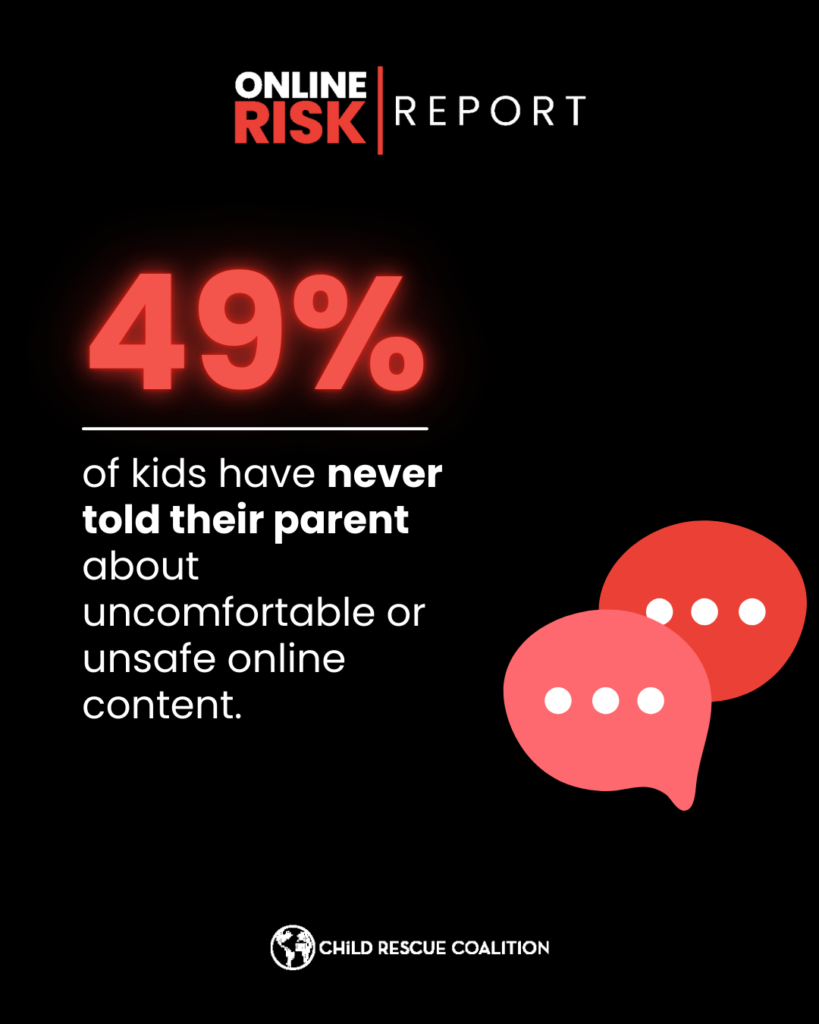Silent Signals: How to Know When Your Child Isn’t Telling You About Online Risks
As parents, we want to believe our children will always come to us when something feels wrong online. But according to our Online Risk Report, nearly half of kids (49%) say they have never told a parent about uncomfortable or unsafe content online.
That silence should concern us all.
The truth is, many children don’t speak up because they’re worried about losing device privileges, being blamed, or simply not knowing how to put their feelings into words. But predators often exploit this silence, relying on secrecy to groom, manipulate, or even extort children.
So how can parents break through the silence and recognize when something isn’t right?
Subtle Signs Something Is Off
Kids may not always say what’s happening directly, but their behavior often speaks volumes. Watch for these potential “silent signals”:
- Sudden changes in mood or behavior after being online
- Reluctance to hand over their device or quickly minimizing screens when you walk in
- A spike in secrecy about apps, passwords, or online friendships
- Increased anxiety, sleep issues, or irritability tied to screen time
- Unexplained gifts, money, or new contacts they can’t easily explain
None of these on their own confirm something harmful is happening. But together, they may signal your child is facing risks they don’t feel ready to discuss.
Opening the Door Without Shame
It’s natural to want to protect your child by setting strict limits, but rules without conversation can shut down communication before it even starts. Instead, try:
- Asking low pressure, open-ended questions about their online world (“Who do you like chatting with most?” instead of “Who are you talking to?”).
- Normalizing the fact that the internet isn’t always safe and that they won’t be in trouble for telling you if something feels wrong.
- Sharing your own digital experiences so kids are more likely to open up if they know you’ve faced challenges too.
- Staying calm, even if you hear something alarming. Your reaction sets the tone for ensuring open lines of communication.
Creating a Safe Space for Disclosure
Children are more likely to come forward if they know:
- They won’t be judged or blamed.
- They won’t automatically lose access to devices.
- You’ll listen first, then respond with solutions together.
Remember: you are your child’s safest place. When predators or peers try to manipulate them into secrecy, your open, judgment-free approach can be the difference between silence and safety.
Start the Conversation Today
Your child may never say the words outright: “I’m being targeted online.” But the signs are often there in their behavior, in their silences, and in the trust you build every day.
Start small. Ask questions. Stay engaged. And remind them that nothing they could ever share will make you love them less.
Discover other potential gaps in your family’s digital life, and what you can do to help by downloading our full Online Risk Report.
Because silence doesn’t have to mean secrecy, and together, we can protect children before harm occurs.


